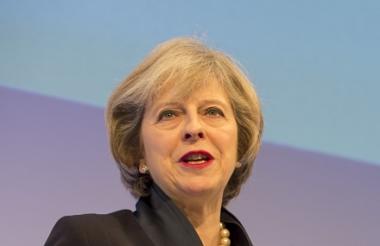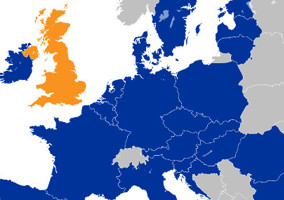Charities have been urged to plan for the prospect of the UK leaving the EU without a deal, after Theresa May announced her resignation.
The prime minister announced this morning that she would step down as Conservative party leader on 7 June to allow a leadership contest to decide her replacement to begin the following week.
May said she would continue to serve as prime minister until Conservative party MPs and members have decided on her replacement.
According to the bookmakers, the current frontrunner to replace May is former foreign secretary Boris Johnson, with fellow Brexiteers Dominic Raab and Michael Gove also in contention.
In response to May’s resignation, sector umbrella bodies have told charities to expect more political uncertainty and to plan for a potentially “harder” Brexit.
NCVO: ‘Prepare for no-deal’
Chris Walker, senior public affairs officer at NCVO, said in a blog post that charities should “make sure your planning fully acknowledges the risks of continuing instability, and in particular the prospect of the UK leaving the EU without a deal”.
Walker said the next prime minister would likely be opposed to May’s withdrawal agreement so would either look to renegotiate with the EU or leave without a deal.
He said charities should not expect the government to have any more capacity to respond to non-Brexit policy issues.
“If anything a new leader will probably expand no-deal planning to demonstrate to the EU that we are prepared to leave without a deal, so it looks like more of the same for charities trying to influence policy decisions,” he said.
“Your opportunities will probably be brief and require limited civil service time, so it might make sense to make your initial asks small, and focus on big changes through the spending review, and the parties’ manifestos.”
Bond: ‘Aid support must be protected’
Bond, the umbrella body for aid organisations, said it was vital that May’s successor would continue to fund international development.
Some of the candidates to be May’s successor such as Esther McVey, Priti Patel and frontrunner Boris Johnson have previously suggested cutting this funding and even closing the Department for International Development.
Bond said in its statement: “To her credit, the outgoing prime minister Theresa May has provided vital support for UK aid throughout her premiership - demonstrated by her commitment to an independent Department for International Development and support for 0.7 per cent Official Development Assistance (ODA) to be invested towards reducing poverty for some of the world’s poorest people.
“We hope that whoever succeeds Theresa May as prime minister will continue this tradition which has earned the UK well deserved respect, legitimacy and influence on the world stage.”
CFG: ‘A challenge and an opportunity’
Caron Bradshaw, chief executive of the Charity Finance Group, said charities should “be alert to the opportunities that come with a change in leadership”.
She said: “It's clear, whoever occupies Number 10, that Brexit will dominate the political landscape for the next decade. In this political environment it is difficult to make progress on addressing the serious social and economic issues facing our country, on which our sector would like to see change.
“This announcement presents both a challenge and an opportunity for our sector. We must be alert to the opportunities that come with a change in leadership.
“A new prime minister should mean a new vision and new priorities for new ministers, and this is a chance to make the case once again for the value the voluntary sector brings, and the role we can play in healing a divided nation.”
SEUK: ‘We must not be idle bystanders’
Andrew O’Brien, director of external affairs at Social Enterprise UK, said that social enterprises would be challenging all prospective candidates to “fix the UK’s broken economy”.
He said: “The country needs energetic leadership, not just to deal with Brexit, but also to resolve the fundamental issues that caused Brexit namely, growing social division and economic stagnation.
“The prime minister tried her best, but it is impossible to ignore the sense of drift in recent months.
“We must ensure that the Conservative leadership is not a monologue on Brexit, and social enterprises will be proposing new ideas and challenging all candidates to show how they will fix the UK’s broken economy.
“It is going to be difficult to cut through this debate, but we must not be idle bystanders.”
|
Related articles











